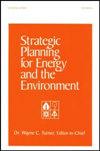A Quantile Regression Analysis of the Impact of Electricity Production Sources on CO2 Emission in South Asian Countries
Q3 Environmental Science
Strategic Planning for Energy and the Environment
Pub Date : 2023-01-31
DOI:10.13052/spee1048-5236.4223
引用次数: 23
Abstract
This study wants to fill a gap in the empirical literature by looking at how the sources of electricity affect CO2 emissions in South Asian countries. Because of the consistent production levels and economic growth in South Asian countries, energy generation is becoming a key issue. The data, which covers from 1972 to 2015, is subjected to quantile regression (QR). The quantile regression coefficients’ findings are statistically significant at a 1% level of significance. According to the regression results, all energy generation sources and associated variables have a positive impact on CO2 emissions. Coal-fired power plants have a bigger impact on the environment than other types of pollution. On the other hand, renewable energy sources have the minimum impact on environmental degradation. Possible alternatives for reducing carbon dioxide emissions instead of coal, oil, and gas-based energy production sources have been presented. The policy implications also suggest that environmental policy should be improved by applying renewable energy, wind energy, hydroelectric sources, and nuclear energy. The link between economic growth and energy concentration needs to be looked into more with the help of more economic indicators and the parameters of electricity-generating sources.南亚国家电力生产来源对二氧化碳排放影响的量化回归分析
这项研究希望通过观察电力来源如何影响南亚国家的二氧化碳排放来填补经验文献中的空白。由于南亚国家持续的生产水平和经济增长,能源生产正成为一个关键问题。这些数据涵盖了1972年至2015年,经过了分位数回归(QR)。分位数回归系数的结果在1%的显著性水平上具有统计学意义。根据回归结果,所有能源产生源和相关变量对二氧化碳排放都有积极影响。燃煤发电厂对环境的影响比其他类型的污染更大。另一方面,可再生能源对环境退化的影响最小。已经提出了替代煤炭、石油和天然气能源生产来源减少二氧化碳排放的可能替代方案。政策影响还表明,应通过应用可再生能源、风能、水力发电和核能来改善环境政策。需要借助更多的经济指标和发电来源的参数,更多地研究经济增长与能源集中之间的联系。
本文章由计算机程序翻译,如有差异,请以英文原文为准。
求助全文
约1分钟内获得全文
求助全文
来源期刊

Strategic Planning for Energy and the Environment
Environmental Science-Environmental Science (all)
CiteScore
1.50
自引率
0.00%
发文量
25
 求助内容:
求助内容: 应助结果提醒方式:
应助结果提醒方式:


